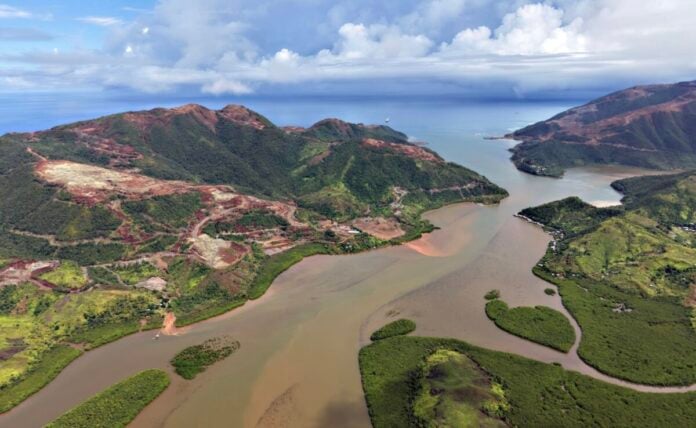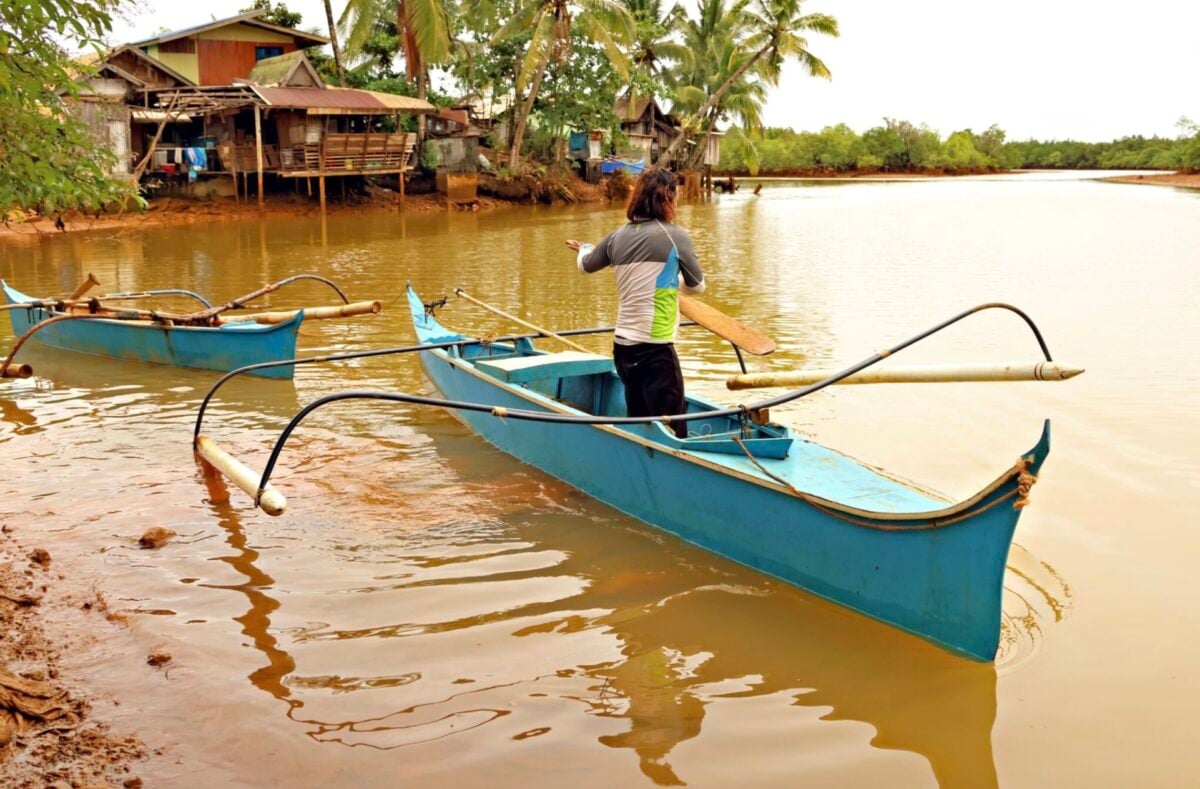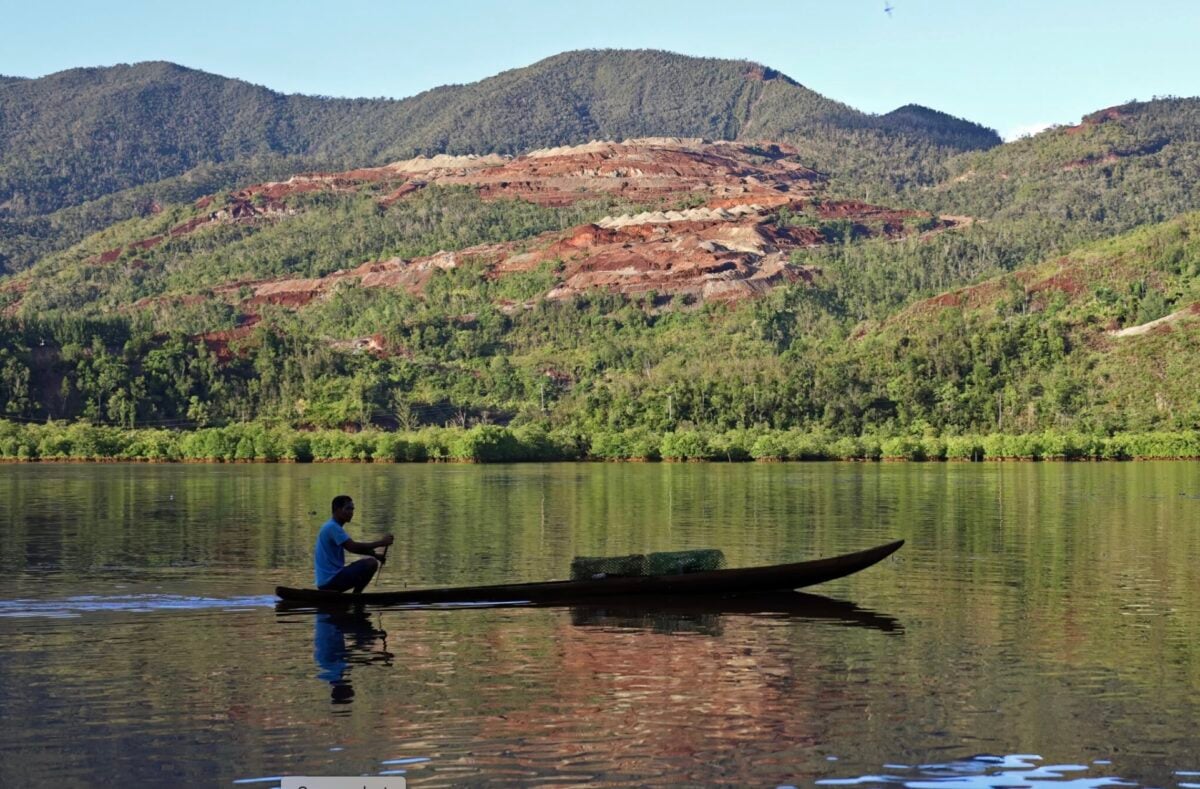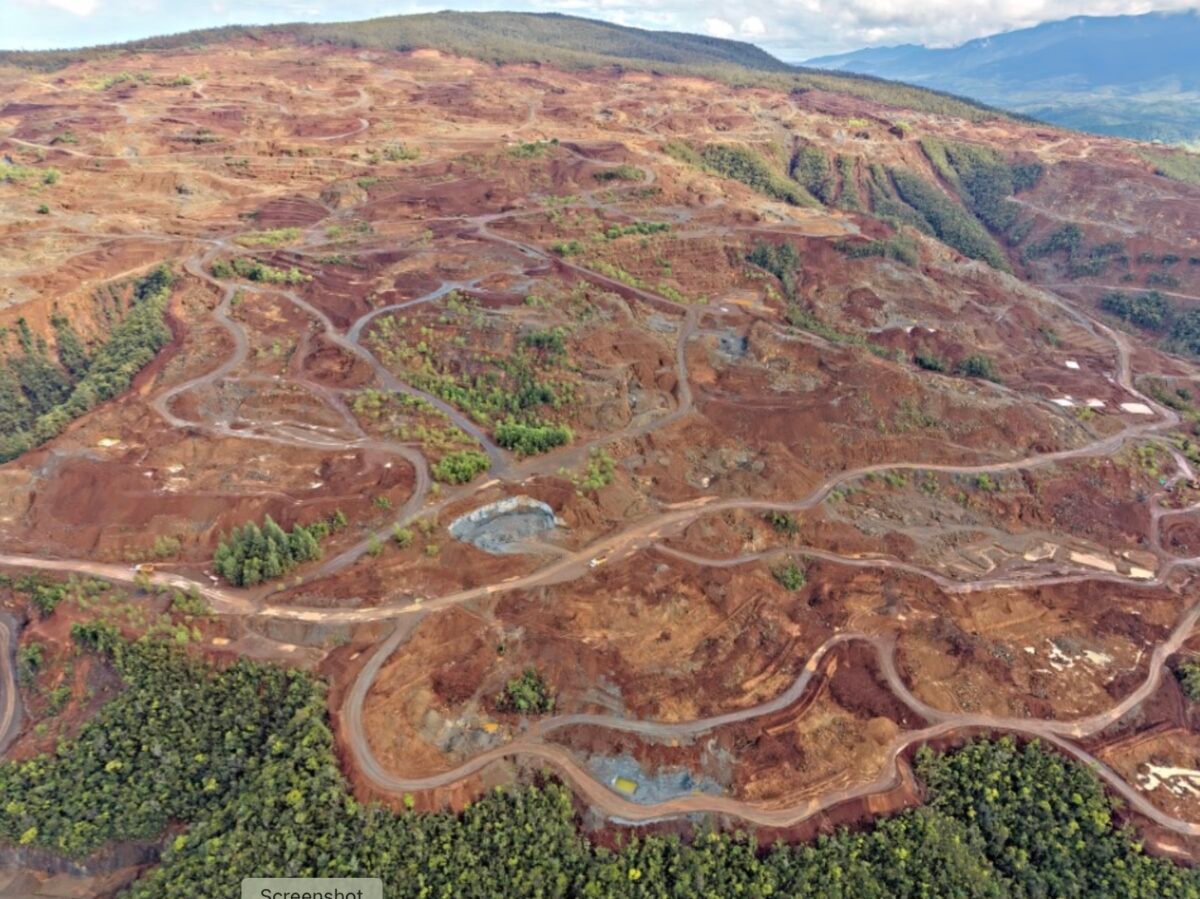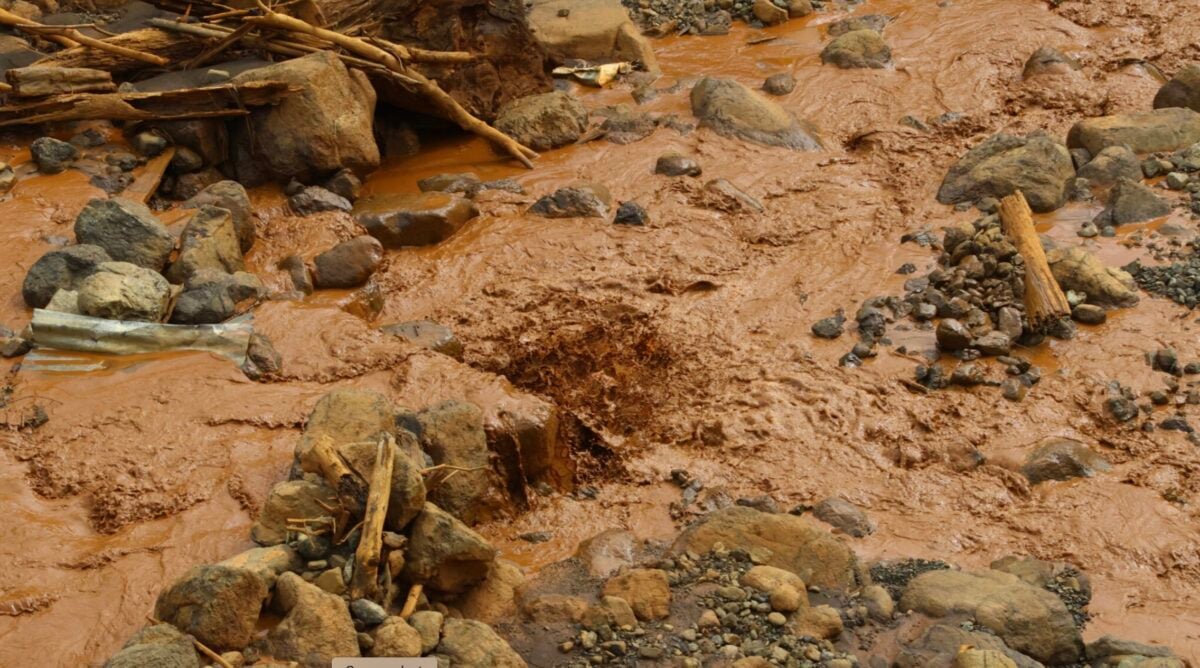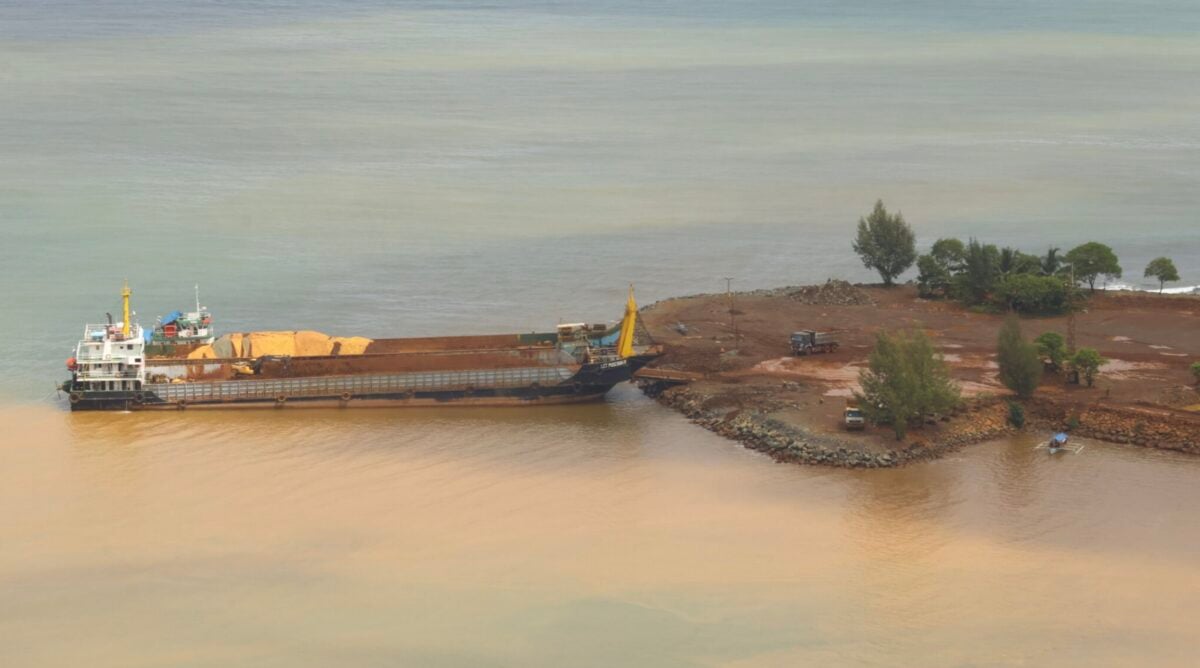The Philippine government, nickel mining companies, and downstream users of nickel, including electric vehicle (EV) and battery companies, must take immediate steps to prevent and remedy environmental degradation and human rights abuses resulting from nickel mining, Climate Rights International said in a new report. The Philippines is the second largest producer of nickel and the world’s leading exporter of raw nickel ore, a mineral used in batteries for EVs and energy storage.
In the 106-page report, “Broken Promises: Philippines Nickel Mining Causes Rights Abuses and Increases Climate Vulnerability,” Climate Rights International interviewed 57 residents and workers who live near nickel mines in Dinagat Island and Surigao del Sur in the Caraga Region of Mindanao, the heart of the Philippines’ mining industry. The Caraga Region has 23 operating nickel mines, more than any other region in the Philippines. Community members report increased vulnerability to the climate crisis linked to mining; the destruction of fishing and farming livelihoods; severe environmental pollution that threatens drinking water and health; increased rates of food insecurity; new difficulties accessing education; a lack of accountability for harms; and attacks, killings, criminalization, and intimidation of those who speak out, including environmental and human rights defenders.
Climate Rights International has previously reported on similar human rights, environmental, and climate harms linked to nickel mining and processing in Indonesia. Multinational companies benefiting from the nickel supply chain have done little to address the documented harms and abuses.
“Nickel is important for the transition to renewable energy, but in the Philippines nickel mining is destroying fishing and farming livelihoods, creating food insecurity, and causing noxious pollution of drinking water,” said Krista Shennum, researcher at Climate Rights International. “Environmental and human rights defenders face attacks, criminalization, and even death for speaking out. The Philippines government needs to prioritize the rights and well-being of frontline mining communities—who bear no responsibility for the climate crisis—by holding companies accountable for abuses and environmental harms.”
Environmental Destruction and Human Rights Abuses
Nickel mining is making local communities more vulnerable to climate impacts, including extreme weather events. Nickel mining operations drive deforestation and the loss of species that provide climate resilience, such as terrestrial and mangrove forests. When deforestation occurs, carbon stored in both plant matter and soil may be released into the atmosphere, turning a carbon sink into a source of emissions. Residents in Tubajon on Dinagat Island in Mindanao described how the loss of forests and mangroves due to mining operations and mining-related pollution has made their communities more exposed to storm surges, high winds, and flooding during extreme weather events like the devastating Super Typhoon Odette in 2021.
For communities that have historically supported themselves through fishing, pollution from nickel mining is posing an existential threat to their way of life. In Dinagat Island and Surigao del Sur, fisherfolk interviewed by Climate Rights International described how water pollution from mining areas has harmed fisheries and made it more difficult, if not impossible, for people to continue fishing.
Across the region, farmers described how mining has made farming much more difficult, and in some cases impossible, due to the loss of their farmland, frequent flooding of fields from mining choked rivers, and dust and water pollution from nearby mining activities. Rice, the most important staple food of the region, is particularly affected because it is grown in lowland areas that are susceptible to flooding and siltation.
Poor mining practices in the Philippines are threatening the fundamental right to food. Pollution from nickel mining and the resulting negative impact on livelihoods is making it difficult for many families to feed themselves. According to Analiza, a 46-year-old mother of four from Tubajon, Dinagat Island, “It is now hard to feed my family. We are hungry most of the time.”
Nickel mining in the Caraga Region is also polluting important water sources that residents depend on for their drinking water. Residents in Dinagat Island described how siltation and runoff from mining operations have polluted their drinking water. Residents living near nickel mines in Dinagat Island and Surigao del Sur told Climate Rights International that they are concerned that recently developed health problems, including respiratory and skin ailments, are related to pollution from nearby mines.
The Philippines is the most dangerous country in Asia to be a land and environmental defender. Multiple people interviewed by Climate Rights International reported knowing individuals whose killings they believe were linked to their anti-mining activities or who had experienced attacks, harassment, or intimidation themselves. Some individuals in the Caraga Region and across the Philippines who have challenged mining companies have faced Strategic Lawsuits Against Public Participation (SLAPPs) that they believe are intended to silence their activism.
Despite the wealth generated for mining companies by their nickel mining operations, some residents in Dinagat Island reported not receiving adequate compensation for the use of their land, destruction of their crops, or use of their homes and other structures.
“People living in mining communities are facing significant harms from powerful companies who act with almost total impunity,” said Shennum. “As one of the countries most impacted by the climate crisis, the Philippines government should be focused on holding companies accountable and ensuring that the nickel industry isn’t exacerbating the impacts of climate change on local communities.”
Government and Corporate Responsibility
A general lack of transparency by many mining companies impacts the ability of local governments and communities to actively participate in approving mining projects or monitoring mining impacts. Despite ongoing complaints from local communities, those directly impacted face a lack of accountability and remedies for the harms they have suffered.
Climate Rights International called on the Philippines government, including the Department of Environment and Natural Resources and the Mines and Geosciences Bureau, to fully enforce and strengthen laws and regulations to minimize the impacts of nickel mining on communities. The government should urgently stop the permitting of new mines until the industry meets domestic and international environmental standards, including in the management of mining waste.
Harms to local communities and the environment are being driven by the individual and cumulative activities of these nickel mining projects, Climate Rights International said. Many nickel mining companies in the Caraga Region have links to powerful actors in the Philippines, including active and former politicians, politically connected families, and wealthy businesspeople. Nickel companies should take immediate steps to remedy water and air pollution caused by their operations and properly dispose of mine waste to minimize environmental pollution.
Electric vehicle and battery companies that directly or indirectly source nickel from the Philippines should use their leverage to ensure suppliers end and remedy rights abuses, clean up water and air pollution, and protect the rights of environmental and human rights defenders, Climate Rights International said. Electric vehicle companies should also increase transparency by providing public information about all companies in their transition mineral supply chains.
“Electric vehicle and battery companies have unique leverage to demand that the mining industry cleans up its act,” said Shennum. “Their customers are environmentally conscious and will decide to buy from companies with the cleanest record. If EV companies want to position themselves as global leaders in the fight against climate change, they must demand that mining companies in their supply chains respect the rights of communities and end environmentally destructive practices.”
